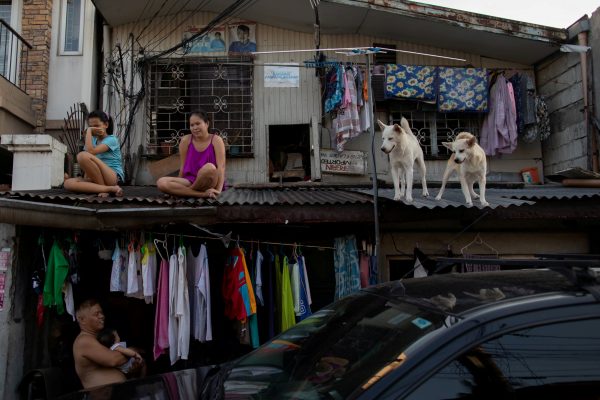This oversight has dire consequences for different sectors of society. In particular, the pandemic is disproportionately affecting women, exacerbating social and gender inequities. A gender-blind policy response threatens the gains towards gender parity achieved in the Philippines pre-pandemic.
The Inter-Agency Task Force for the Management of Emerging Infectious Diseases (IATF), the body designated to implement the government’s COVID-19 policy response, released several guidelines during the various stages of lockdown — from strict Enhanced Community Quarantine to eased Modified Enhanced and General Community Quarantine. These guidelines served as instructions on social distancing (with limits on business operations and public gatherings), restricted movements outside the home (with checkpoints and mass transportation suspensions) and revised public health regulations to curb the spread of COVID-19.
But the IATF has not fully considered the detrimental impact of the guidelines through a gendered lens — specifically the fact that women comprise 46 per cent of the Philippine labour force. The closure of all business operations (except for the production of essential goods and services) has threatened the livelihoods of women who are highly represented in industries such as retail, hospitality, tourism and manufacturing.
Faced with the challenge of implementing flexible work arrangements and sensitive to a decline in consumer demand, these sectors resort to furloughs and even layoffs, beginning with contractual and part time employees who earn less and are usually women.
In the women-dominated education sector, where remote work is possible, teachers are subjected to either ‘no work, no pay’ or reduced pay schemes for the remaining 2020 school year because of the lockdown. Meanwhile, these teachers are under pressure to learn and adapt to the modalities of virtual classes and distance teaching, to provide emotional support to students and to engage students in new and innovative ways of learning. In public schools with substandard technological infrastructure, teachers are expected to conduct online classes with insufficient preparation and technical support while managing their own households.
The juggling of work and household care responsibilities (which now includes schooling) puts an extra burden on women undertaking economic activities from their homes.
The resulting reduction in the economic empowerment of women increases their vulnerability to domestic abuse. And the implemented quarantine measures have trapped Filipino women and children with abusive partners and family members in their homes. One in four women has experienced domestic violence and with limited mobility options, the lockdown measures serve as a breeding ground for situations that discourage victims from reporting domestic abuse. The economic shutdown has also left the majority of Filipinos without a source of income and has led to an increase in online sexual exploitation of children and women.
The lockdown has also led to decreased access to mental, sexual and reproductive health services for women — such as psychosocial support, women’s health counselling, contraceptives, antenatal and postnatal care and menstrual products.
COVID-19 is not gender-blind, so the response to it should not be either. A gender-blind policy fails to recognise that pandemics affect men and women differently. This recognition is the necessary first step to address gender inequality. The Philippine government lacked a gendered lens when designing its COVID-19 policy responses and implementation is a reflection of a misunderstanding of the realities of one of its most vulnerable groups — women.
While the immediate guidelines released by IATF did not mention responses specific to women, it is not too late for the Duterte government to incorporate gender transversality into crafting and implementing a post-COVID-19 policy response to preserve the progress achieved towards gender parity.
Support to highly impacted industries in the financial stimulus package should be earmarked and its disbursal carefully tracked. Conditionality, such as mandating multi-stakeholder consultation on decisions affecting employees, should also be considered. And corporate tax schemes which incentivise investments in skills development, emphasising teaching and learning innovations, should be fast-tracked.
Given the Philippines’ pre-existing weak infrastructure, especially in congested settlement areas, the government should ensure safe public (partitioned) spaces to allow physical distancing and access for mental, psychological and physical health services at the community level — specifically for people from the fringes of society.
Governments should adopt a gender lens in policy setting — including data reporting — because it is an effective tool to address specific risks and vulnerabilities, an action to ensure sustainable progress across every measure of development and the only way to preserve gender equality during natural and manmade disasters.
Placing gender at the centre of government responses will not only enhance human rights protection and program interventions but also strengthen gender representation and social participation and eventually improve social and economic outcomes.
Dynah A Basuil is Professor of Human Capital Management and Executive Director of the Ramon V Del Rosario Sr Center for Corporate Responsibility at the Asian Institute of Management (AIM RVR Center), Makati City, The Philippines.
KG Lobo is Research Lead at the AIM RVR Center.
Christine Marie Faustino is a Program and Research Associate at the AIM RVR Center.
This article is part of an EAF special feature series on the novel coronavirus crisis and its impact.

